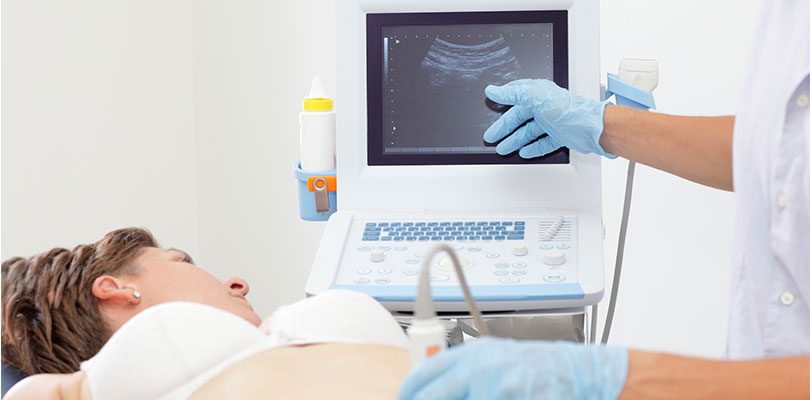Photo Credit: petrograd99 / istockphoto.com
Journaling for Cancer
Cancer is a powerful force. When it enters your life, you have to call on all of your trusted coping skills to deal with the physical and psychological stresses that result.
You may be working on improving your diet and sleep, trying to exercise, and spending more time with loved ones, but your current coping skills still may not offer enough.
If they come up short, you will be left feeling increasingly anxious, depressed, hopeless, frustrated and fearful. Without the best types of positive coping skills, you will be more likely to seek the comfort of negative coping skills. Negative coping skills are only focused on short term benefit while sacrificing long-term gains.
A fantastic positive coping skill that is not done often enough is journaling. Especially for someone undergoing cancer treatment, journaling offers much in the way of benefits, with very few risks. The process is 100% controlled by you so you do not have to depend on others to facilitate.
If you aren’t sure about the good that can come from journaling, take some time to consider what journaling can do and how you can become a success at it.
Why Journaling?
Whenever people hear journaling, they think it’s only a self-indulgent behavior that 12-year-old girls use to keep secrets about boys. Sure, this is part of journaling, but it can be so much more for you. Put aside those faulty notions for a clear understanding of what journaling can do.
The most important thing that journaling creates is an outlet for you to express yourself. Right now, you probably have innumerable thoughts swirling through your mind. You’re probably pretty sure that your head is going to explode off your neck. Journaling can help release the tension.
Journaling gives you the opportunity to blow off steam in a safe, productive way. This ability to “get it all out” will free up room so that you can accept new information and feelings without being entirely overwhelmed. Journaling gives you a forum that is free from judgment and opinions of other people. You can write whatever you want, however you want. There is a sense of complete freedom that is hard to find ordinarily. You can curse God, life or the universe on the pages of your journal and no one has to see it.
Another great pro of journaling is its ability to help you process your thoughts and feelings. Having cancer is anything but simple. It creates such a mix of emotions like fear, anger, worry, shock, sadness and guilt. The emotions are paired with thoughts about people’s response to you, your doctors’ level of commitment to you and disappointment in your current state. It can be hard to know what to think and how to feel.
Journaling lets you free your thoughts and feelings from the prison of your mind. Seeing them in black and white helps to understand your triggers, judgments, and biases, which gives you the chance to rework your thinking to arrive at a new conclusion if you are not satisfied with the outcomes. Journaling lets you see your thoughts and feelings as things that are more flexible and fluid than you may have previously considered.
During this process, you become better able to express your needs to others. During your diagnosis and treatment, it will be uncomfortable to constantly ask people for assistance. You might not even know what you need or what will make you feel better mentally or physically. This process is still new to you.
By journaling, you can learn ways to communicate more effectively to the people around you. The pages of your journal give you the opportunity to engage in trial and error of effective communication. If you are having trouble speaking to someone in your life, write it in your journal to refine your message before deciding to say it out loud.
Some of the best essential oils for cancer patients are frankincense, clary sage, lavender, citrus oils, lemongrass, myrrh, peppermint, and spearmint.
As if the previous benefits of journaling weren’t enough, consider that journaling also allows you to know yourself. Knowing yourself is one the best ways to combat depression, anxiety or any other mental health concern that accompanies your cancer diagnosis and treatment.
When you journal, you begin to connect the dots of your life. You find patterns and trends with your thoughts, feelings, and behaviors in ways that you never have previously. You can see how your past influences your present. Knowing yourself allows you to prevent problems before they develop and to look for the solutions that you employed in the past.
Of course, you can never prevent all problems from surfacing. Journaling allows you to solve problems because journaling allows you to be objective to yourself and the world around you. It gives you the power to solve new problems better than ever before. You can look at yourself with increased accuracy, and you can understand the people around you with more empathy.
Empathy is the act of putting yourself in someone else’s shoes to know what it’s like to be them. Empathy is essential for conflict resolution, and it is something that tends to diminish during treatment because more of your energies are focused on you.
Too many people think that journaling is only set in the past. A really interesting method to journaling is having it focused on your goals for the future. What do you want to work on? Many people fail to complete goals because they lack the needed consistency. For you, your diagnosis or treatment may have you questioning many aspects of your life and the direction you are headed. You can process the reasons why today did not go as planned and create a new strategy for tomorrow. Without goals, you become at risk for getting stuck and being stagnant. Accomplishing goals gives you a sense of purpose and direction that make life more satisfying.
How to Journal
Beginning something is much different than being consistent with it. To make journaling successful, treat it like exercise. Going from no exercise to constant exercise is too taxing on your body and your mind. Ease yourself into journaling by experimenting a few times a week. Limit yourself to 10 – 15 minutes a day until you develop a level of comfort.
When and where you journal has a strong bearing on success. Try to journal at night in an attempt to reflect on the day, but be flexible if this does not work for you. The bedroom seems like the natural spot to journal if there is enough privacy for you. If not, look elsewhere like outside, the bathroom or in the attic. There is no wrong time to journal or wrong place to do it.
Your method of journaling has many options as well. Many opt for the simplicity of pen and paper, but don’t shy away from some 21st century options. Writing on a computer or tablet can assist in the flow of material from your fingers to the screen, while locking it away in a text document can ensure that no one ever finds it. You can even choose to forgo letters and words altogether by using art to convey your thoughts and feelings.
Some people think that sharing their thoughts with the world via blog or social media is the best thing to do. Surely, communicating yourself to a large group has many pluses, but for journal writing, keep it confidential. The knowledge that people my read your writing changes the content in undesirable ways. You want the words to flow from you without any filters that comes from worry about the perceptions of others.
The truth is that journaling can be whatever you want it to be. As long as you do it with consistency and you find ways to gain from it, the process is worthwhile. Avoid thoughts of beginning your journal when life settles down. When life if crazy, hectic and confusing, you need journaling the most. Adding another coping skill is always a good idea.
Today, turn an ordinary notebook into an extraordinary journal.







